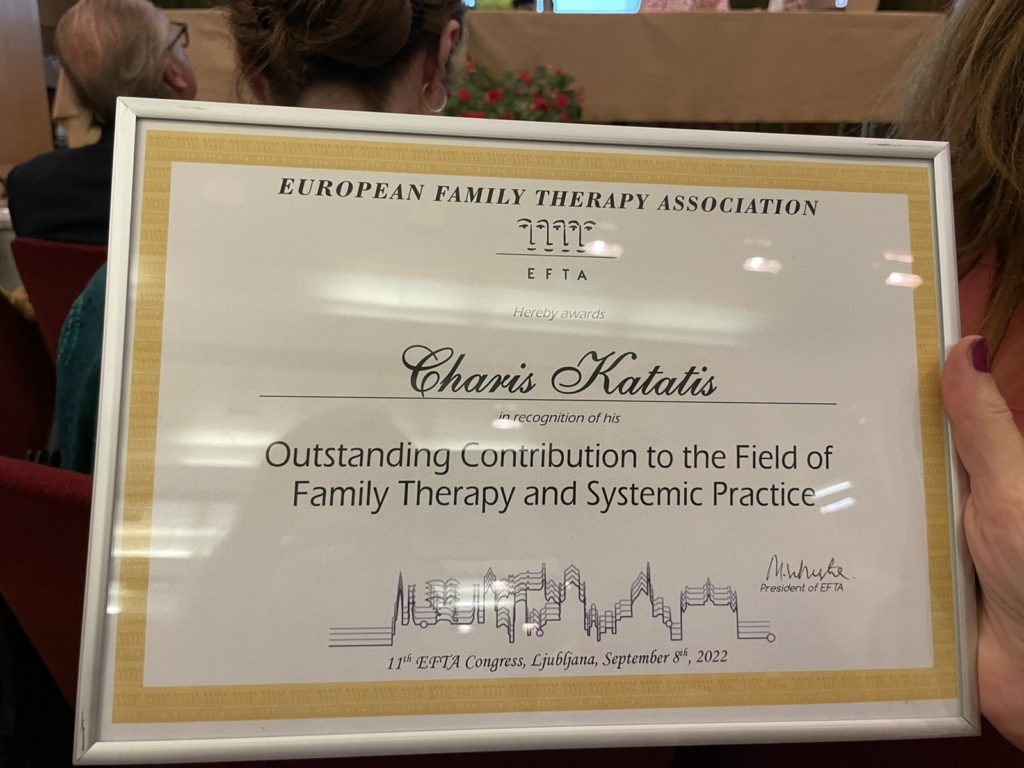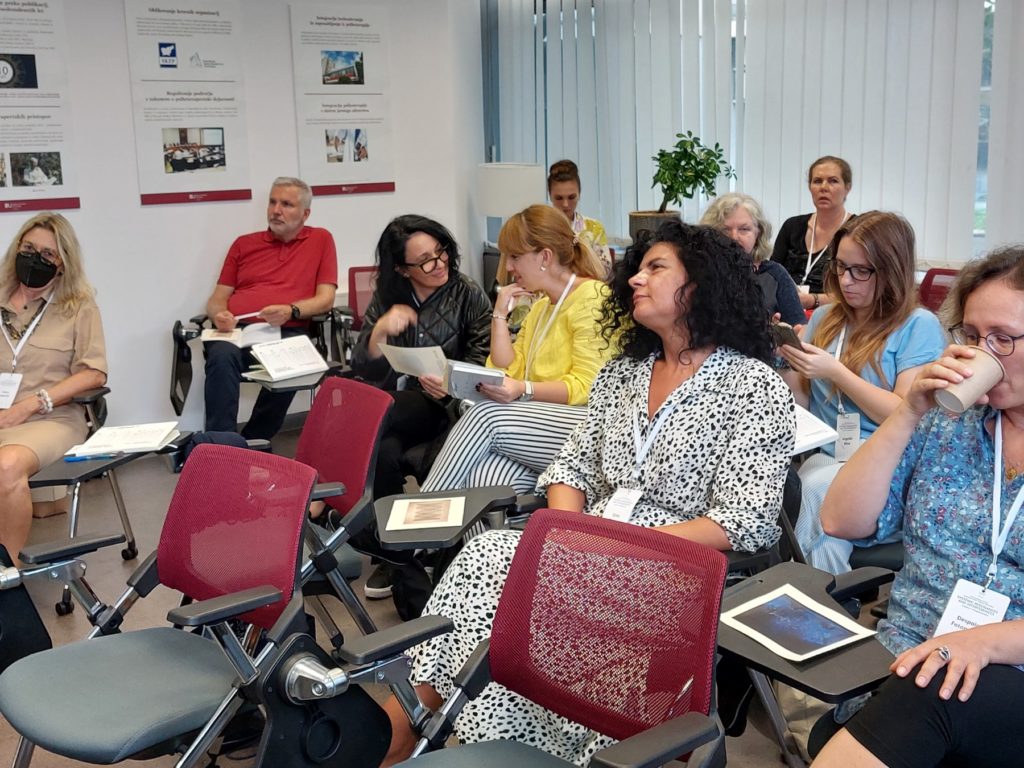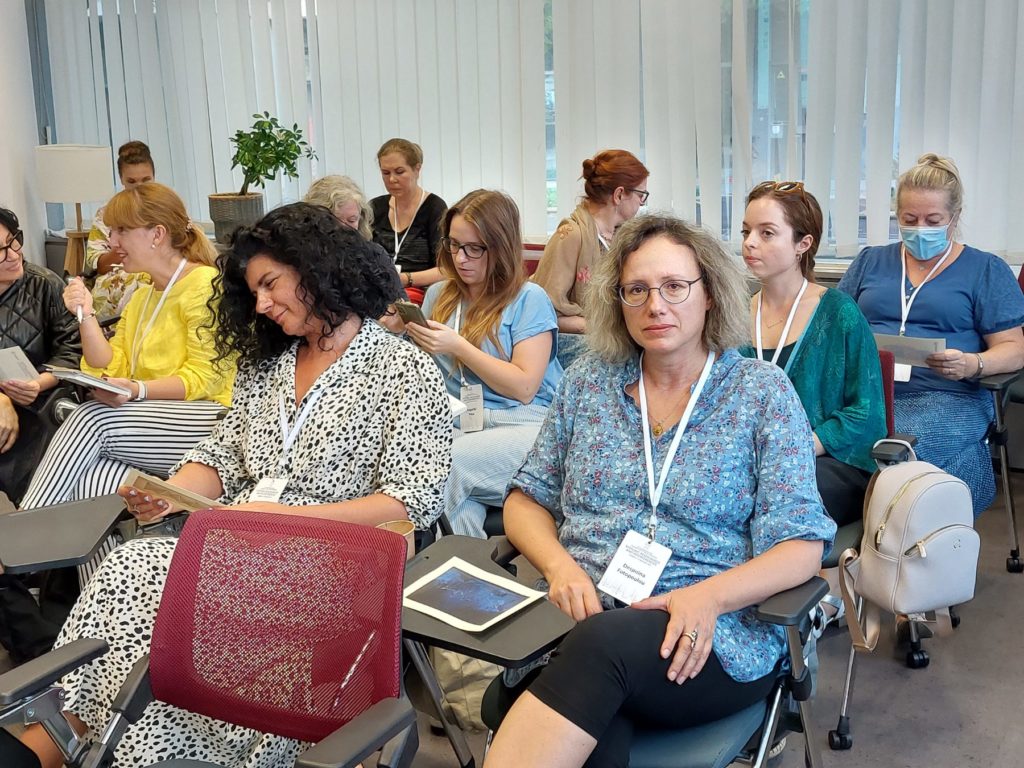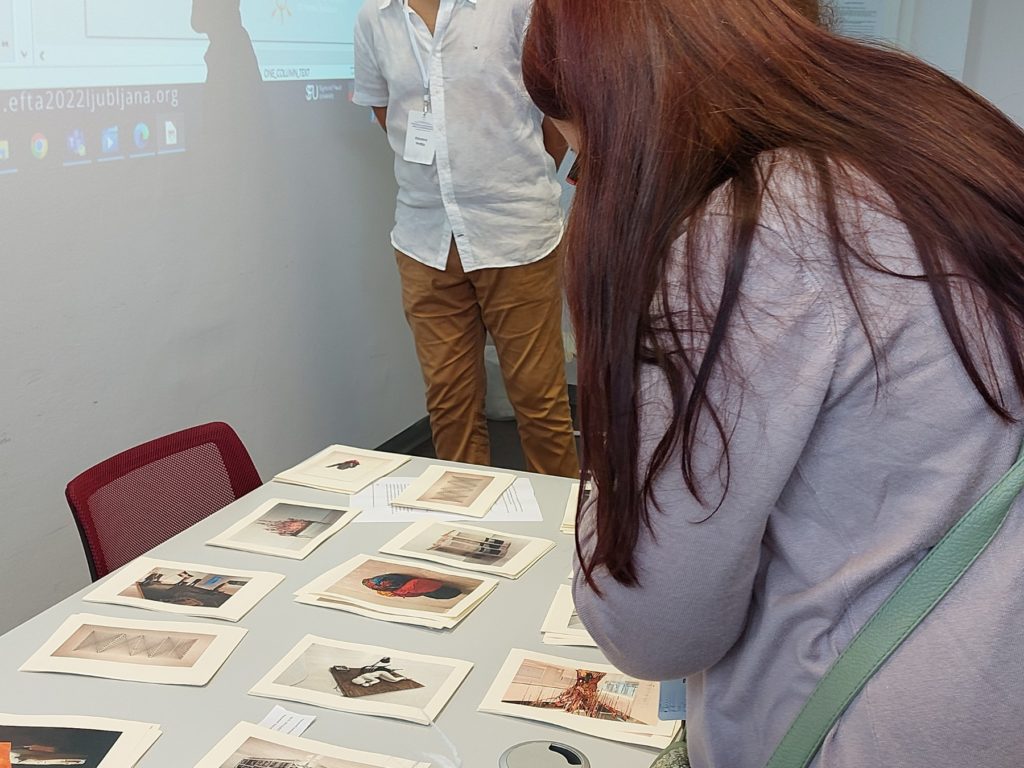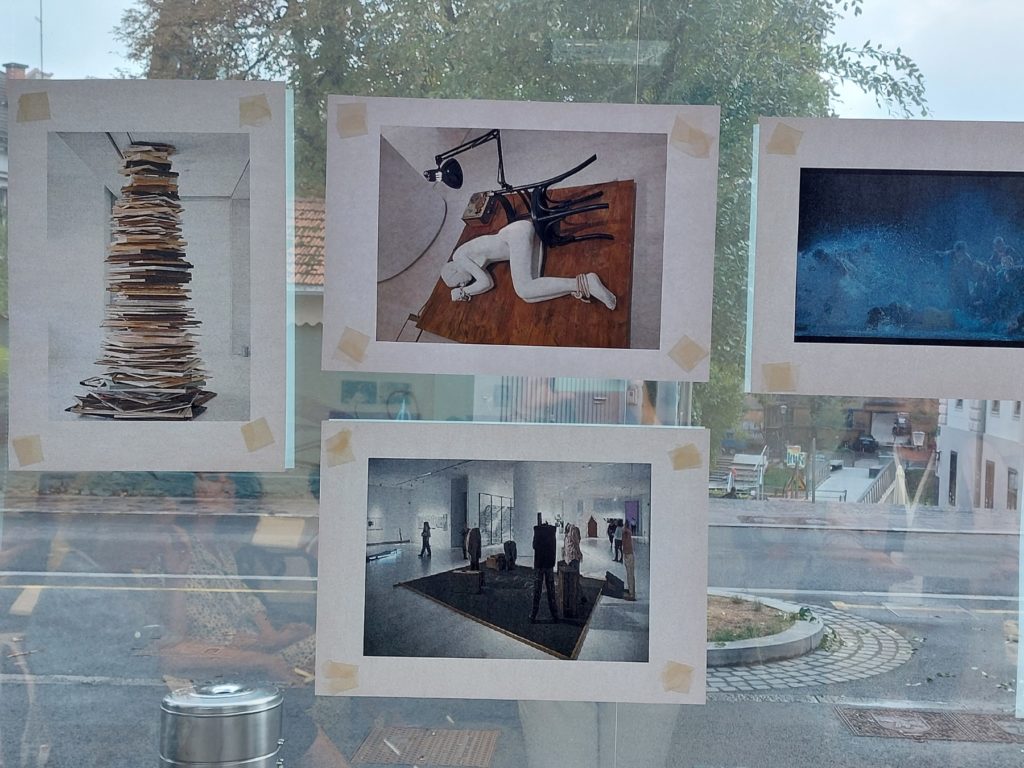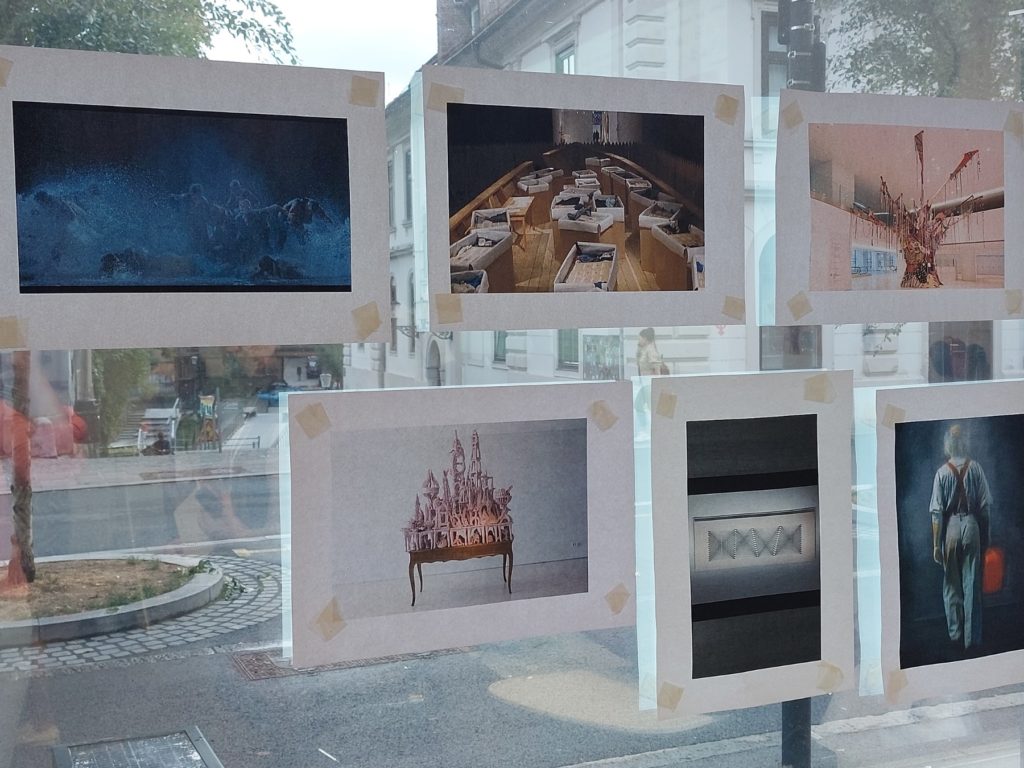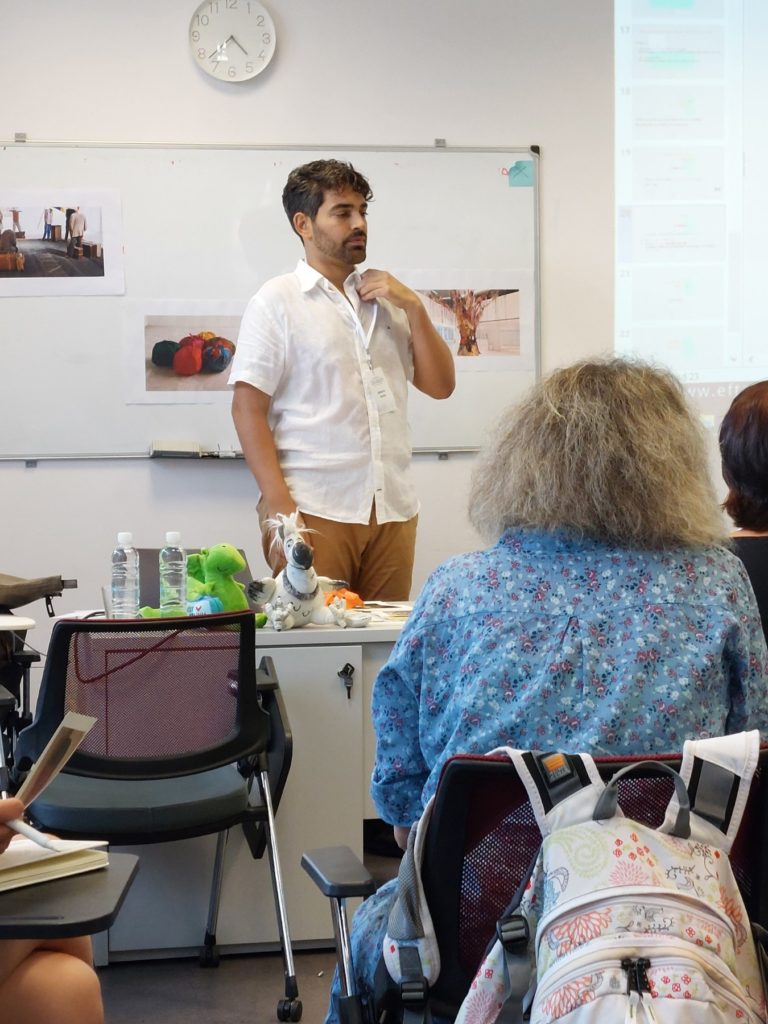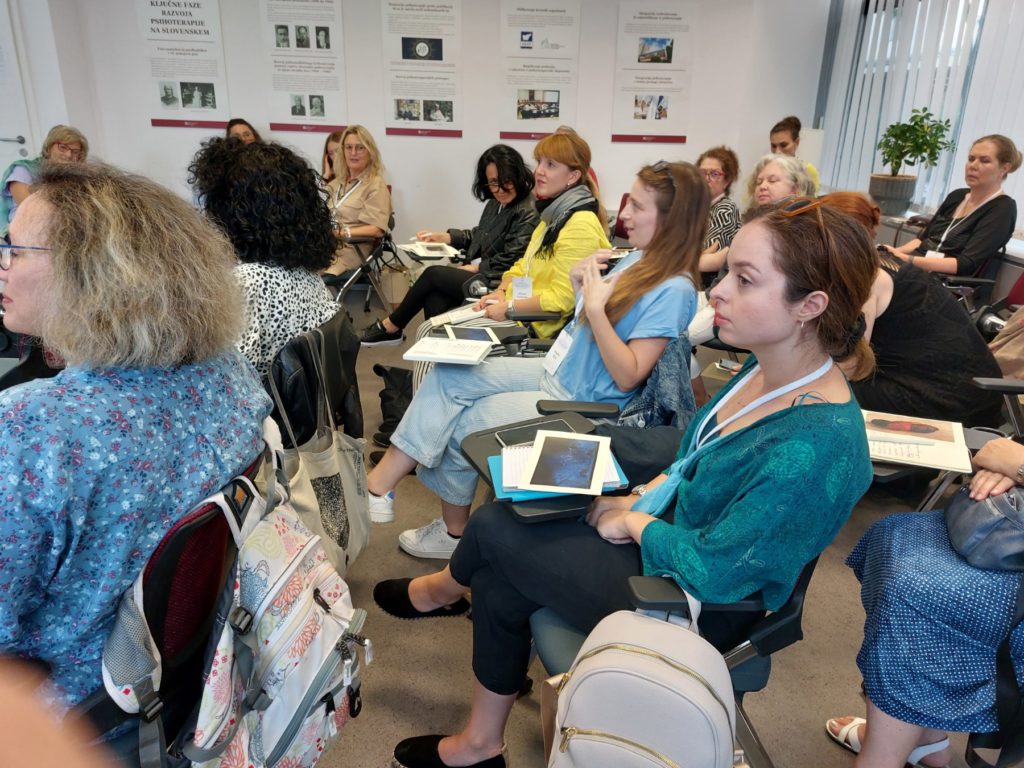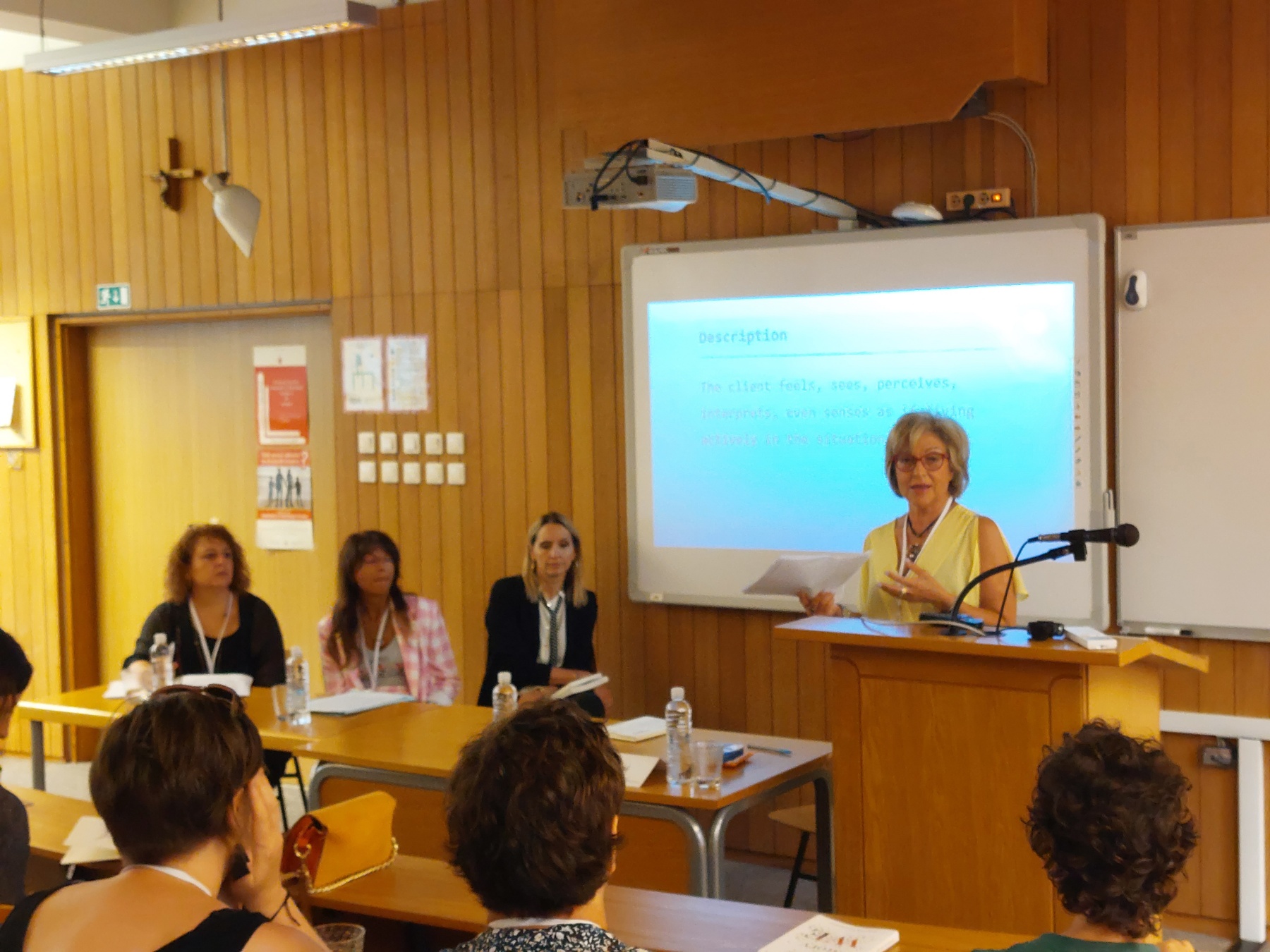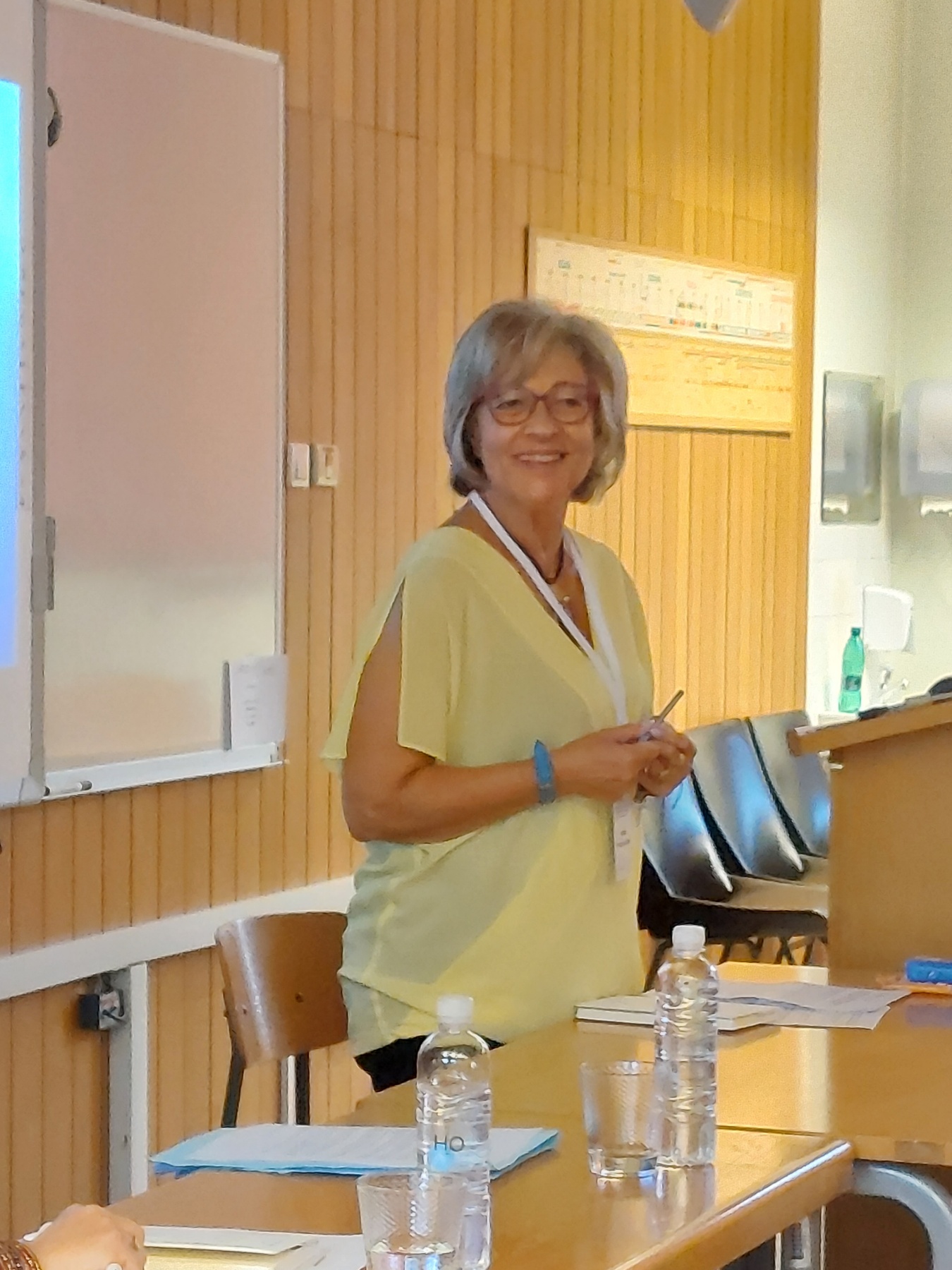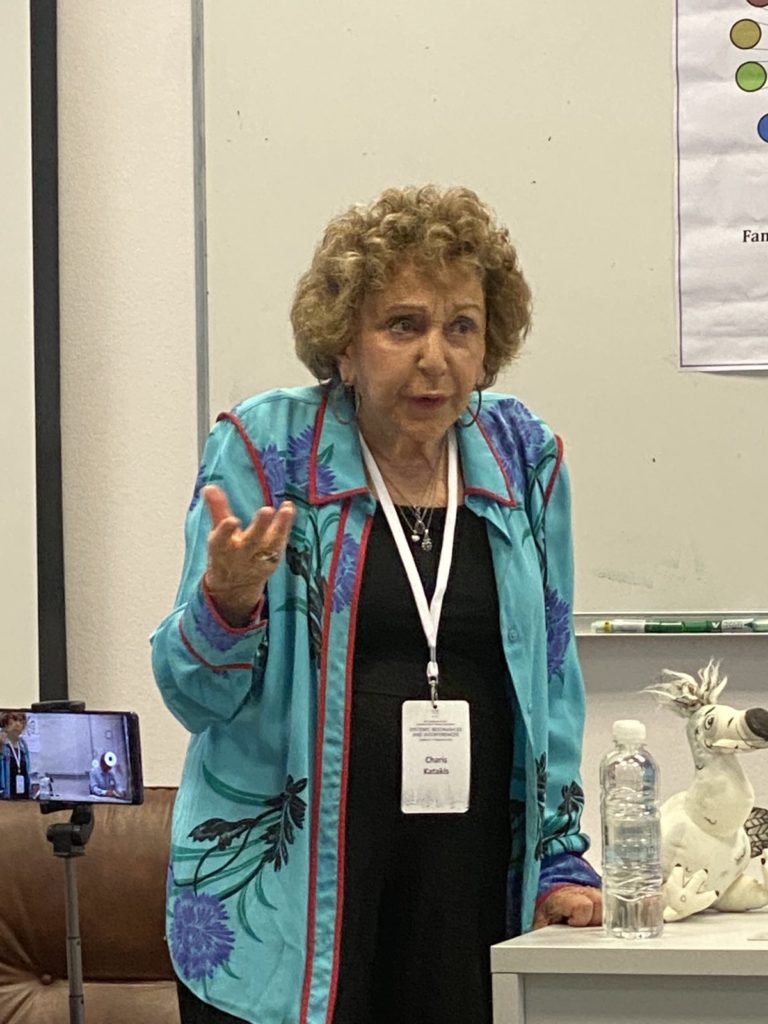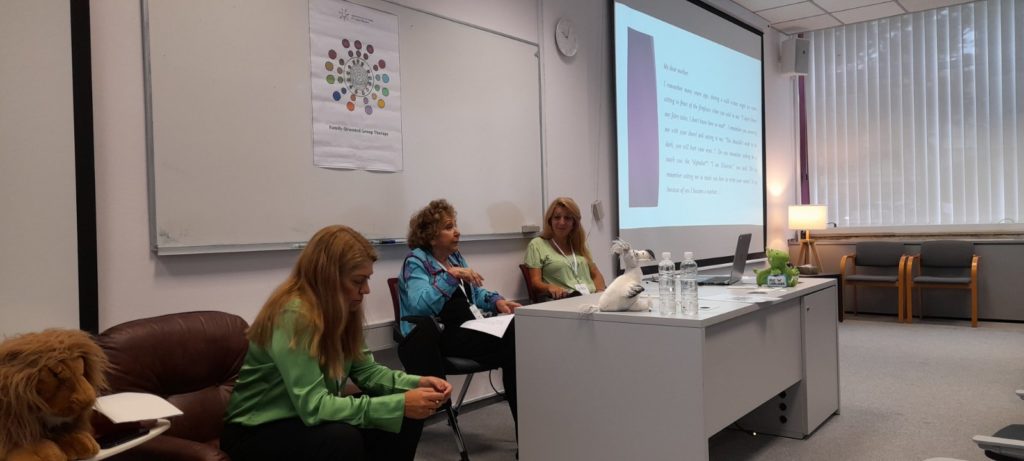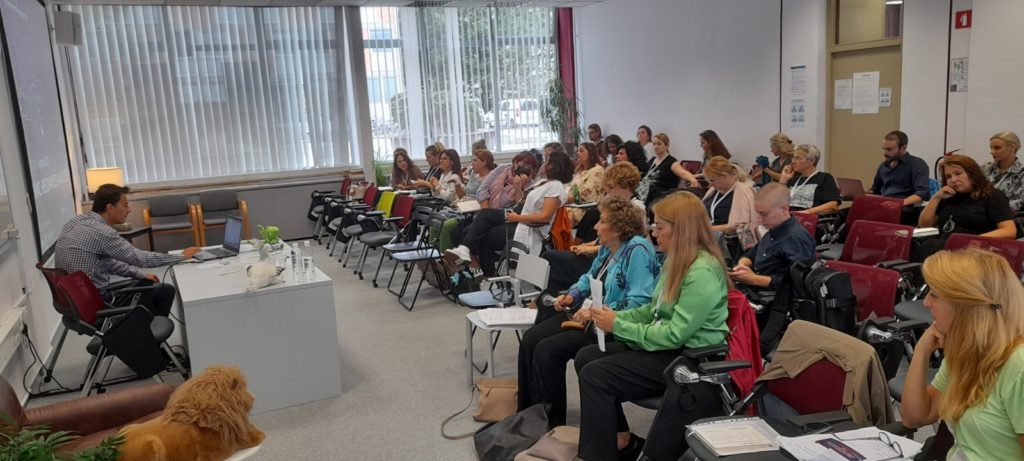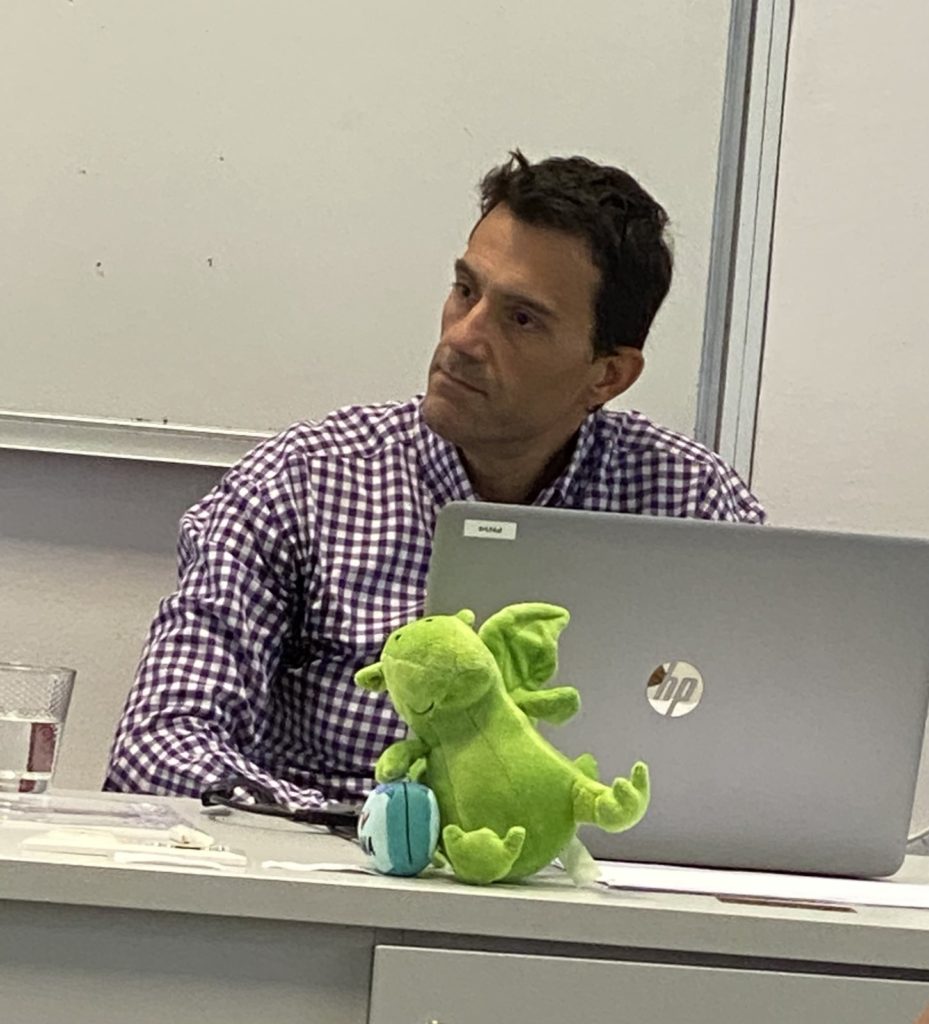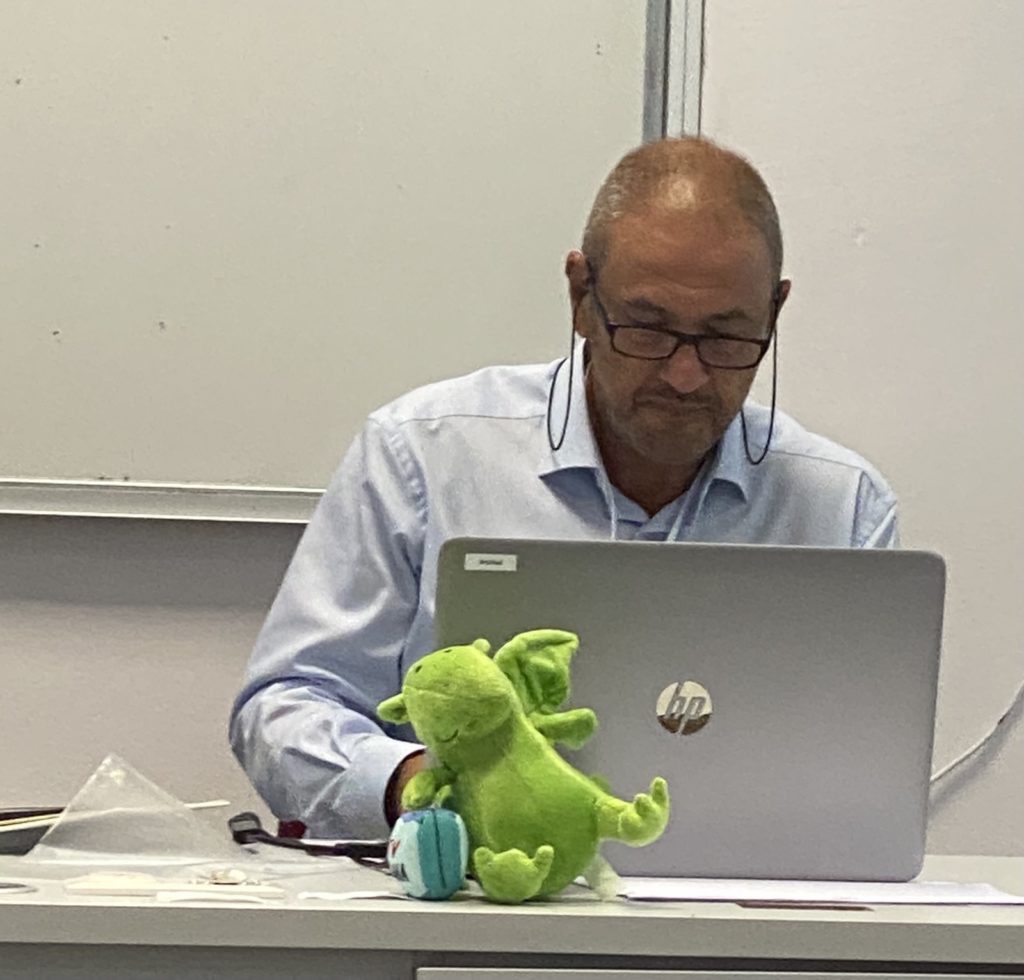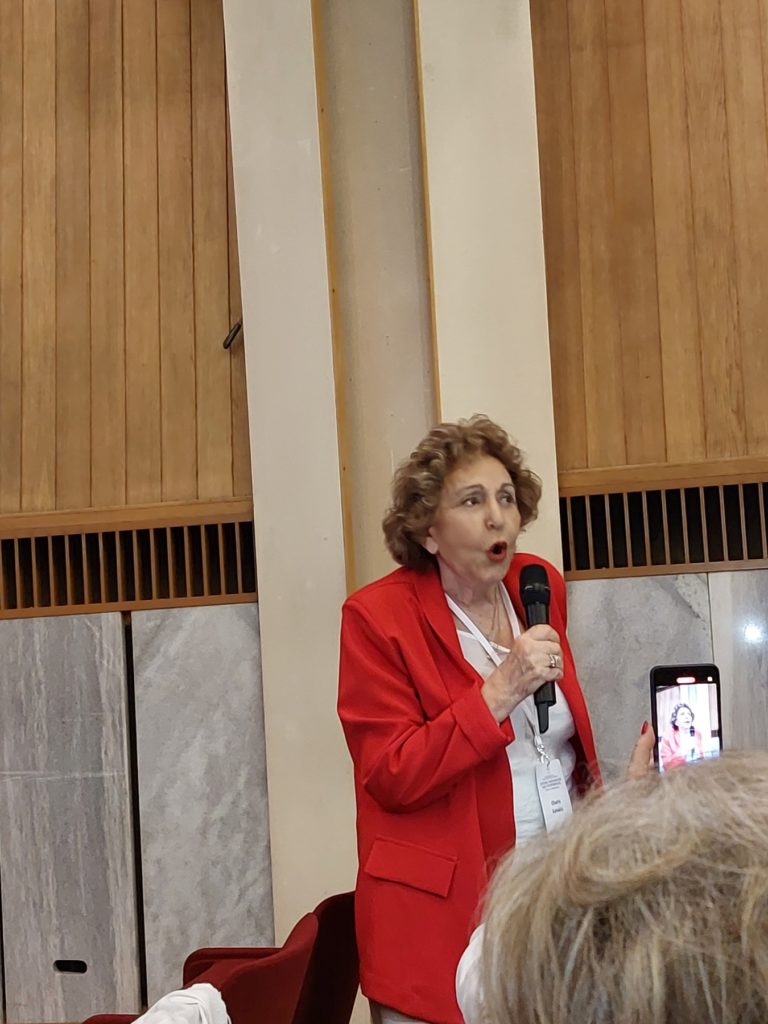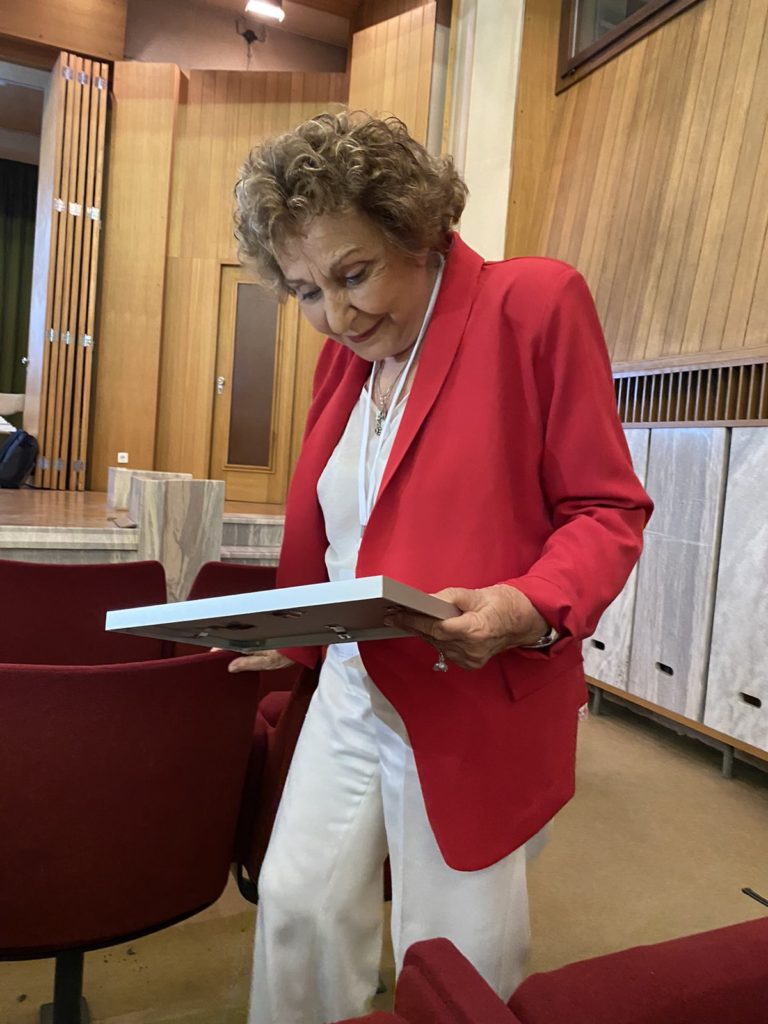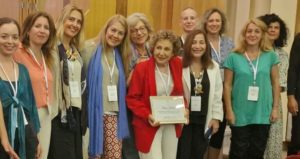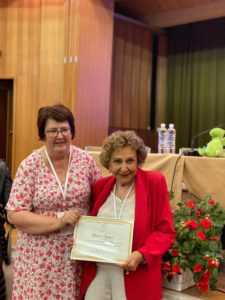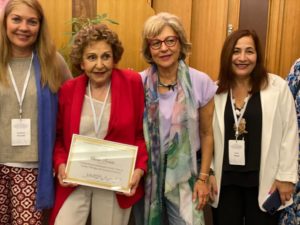
Δυναμική ήταν για ακόμα μια φορά η παρουσία του Εργαστηρίου στο 11ο Συνέδριο της EFTA στη Ljubljana της Σλοβενίας.
Παρακάτω μπορείτε να δείτε συνοπτικά τις συμμετοχές μας στο συνέδριο μεταξύ 7-10 Σεπτεμβρίου 2022.
Πέμπτη, 8 Σεπτεμβρίου 2022:
The work of art as a means of exploring, expanding and enriching our psyche as therapists: Bridging self-reference with the role of the systemic therapy-trainee.
Under the supervision of our trainers Maria Pirounaki and Elena Stolaki, we experienced at the Museum of Modern Art, the use of a self-selected work of art first in self-reflection as trainees, deepening both our role- and self-awareness, second in a shared common abstracted sequence of all self-reflections, enhancing our bonding. In this workshop we focus on the process of enabling the emergence of each one’s non-conscious emotional state in a simultaneous dialogue with his/her conscious convictions regarding the self and the role ‘trainee’. We emphasize the importance of the recognition and the acceptance for the therapist-to-be, of personal emotions and experiences in distinction to those of the client through means of a work of art. Participants will have the chance of becoming familiar with the use of experiential exercises based on portable art forms and also to tell the difference among the use of art in training, psychoeducation and therapy.
Four Mediterranean voices advocating for the necessity to listen to our inner selves and to each other attentively, in the face of conflict and other challenging situations
During therapy, alternatively to usual ‘graduation’, an elaboration at the deepest levels of the client’s psyche can be processed within the context of systemic therapy group, in combination with individual sessions. It concerns the elaboration of existence and presence, still unrefined, sometimes even mentally, of the inner child inside the client which he approaches and processes, not at the level of connections through awareness or emotional charge. The client is submerged to re-experiencing from scratch emotions of the child back then, which had to be suppressed. Currently they emerge and overwhelm, even conquer the client. This theoretical suggestion is defined, identifying points of proximity and affinity with a series of theories. The therapist’s attitude is depicted as well as techniques and tools such as pieces of art and symbolic objects, enhancing the rewriting of a new functional childhood through ‘family transference’ experiences in the therapeutic group.
|
Παρασκευή 9 Σεπτεμβρίου 2022 – Στρογγυλό Τραπέζι
|
Family Oriented Group Therapy: Family therapy without a family
The aim of this round table is to present a model of therapy according to which family therapy and systemic group therapy are considered two sides of the same coin. Family oriented group therapy (F.O.G.T.) is the most distinctive expression of Greek systemic practice. These groups promote the reconstruction of attitudes, concepts, and beliefs about family life (values, roles & behaviors). When one member of the family enters long-term family-oriented group therapy, she or he becomes the vehicle for pervasive family change. This shared exploration of the systemic nature of relationships, promotes the reestablishment of connectedness and therefore resembles a microcosm of a healthier society. The presenters will focus on different aspects of the model (therapy & training) and following a dialogical approach, will attempt to provide an all-inclusive perspective of this model.
Presentations of the Symposium
- Family Oriented Group Therapy in the context of an integrative model of psychotherapy: The Greek paradigm
Charis Katakis
As we move away from traditional family therapy to a broader view of systemic therapy, we are witnessing a growing awareness of the usefulness of groups. The aim of this presentation is to highlight the integrative theoretical framework on which Family Oriented Group Therapy Model is based. Τhese theoretical conceptualizations as well as their applications in our clinical work with groups, families, individuals, communities and training of professionals, were woven in the canvas of Greek culture – classical Greek thought as well as recent everchanging socioeconomic and psychosocial patterns of family and community life.
- Group process, neuroscience, attachment and systems: The Family Oriented Group Therapy Model
George Bogdanis
The aim of the presentation is to illustrate how our integrative model of systemic psychotherapy focusing in the relations between cognitions, emotion and attachment in group therapy utilize neuroscience, interpersonal neurobiology, attachment theory and systemic thinking to promote therapeutic changes in group therapy. The presentation will be enriched with clinical material from our clinical practice.
- Bringing Family Oriented Group Therapy with family sessions inside and outside the group
Maria Leto Katakis
- The training of therapists in Family Oriented Group Therapy
Christos Ziouvas
- Therapy of trainee therapists: A sine qua non
Era Moulaki
Σάββατο 10 Σεπτεμβρίου 2022
The use of letter writing in promoting systemic change in families
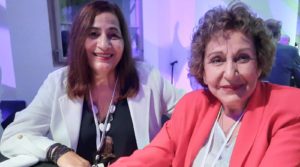
This workshop aims at exploring the role of the written word in the therapeutic process. In the context of an integrative model of systemic psychotherapy, written messages and letters emerge from an interactive process between therapists, patients and significant others. A key feature of these written texts is the positive re-framings of both personal and collective behaviors and choices, which have been proven to be particularly effective in resolving relational impasses and in strengthening and enriching communication.
Through a short theoretical presentation, clinical material demonstration and a number of small group discussions and tasks, participants will be introduced to the key aspects of this technique. The workshop is addressed to therapists, trainees and other mental health professionals who are looking for opportunities to enrich their practical repertoire of approaches and techniques. This approach seems highly relevant, at a time when new ways that enhance and re – establish intercommunication and cooperation are crucial.
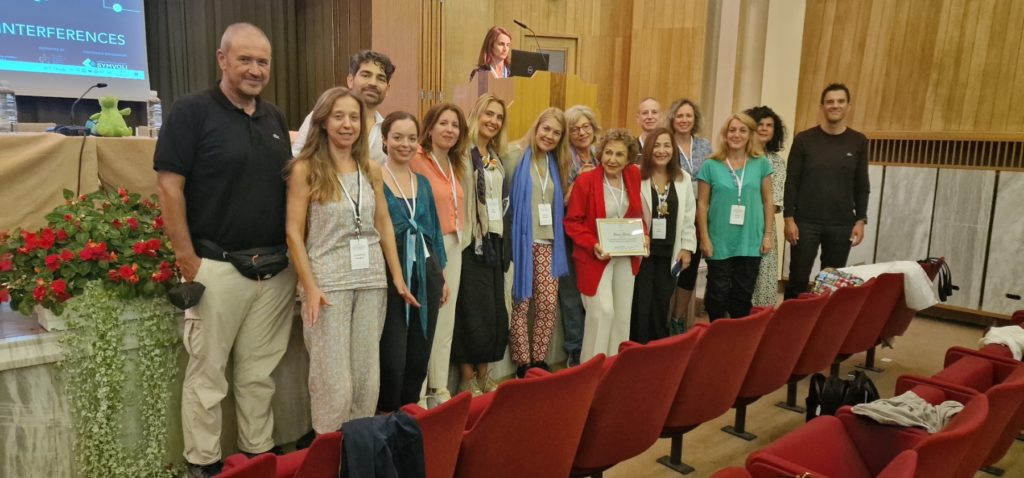
Στο πλαίσιο των εργασιών του συνεδρίου, υπήρξε και η τιμητική βράβευση της κας Χάρις Κατάκη για τη προσφορά της στην Οικογενειακή Θεραπεία.
